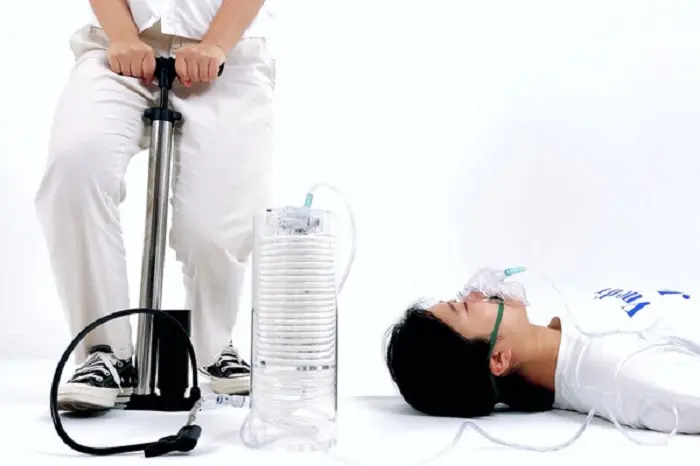An innovative, unpowered medical oxygen generator designed by researchers at the Korea Advanced Institute of Science and Technology (KAIST) has been recognized internationally as one of the top contenders in a global design competition. The device, named Oxynizer, was developed by Professor Bae Sang-min of KAIST’s Department of Industrial Design, with the goal of providing affordable medical oxygen to patients in developing countries.
Oxynizer operates without electricity, using a simple bicycle air pump to generate and deliver oxygen to patients. This cost-effective solution is aimed at addressing the lack of medical oxygen in low-resource settings, making it an essential tool for regions where access to electricity and advanced medical infrastructure is limited.
KAIST announced that the Oxynizer was selected as one of the top 20 global finalists in the prestigious James Dyson Award 2024. The James Dyson Award, organized by Sir James Dyson, founder of Dyson Ltd., annually recognizes groundbreaking innovations by engineers and designers from across the world. This year, the competition saw 1,911 submissions from 29 countries, with 20 finalists now competing for the top prize. The winner, to be announced on November 13, will receive a cash prize of £30,000, while all shortlisted finalists, including the Oxynizer, will receive £5,000.
In addition to the Dyson Award, the Oxynizer has also been recognized by Prototypes for Humanity 2024, a global initiative organized by the Art Dubai Group. The device was selected as one of the top 100 prototypes out of more than 3,000 submissions from universities worldwide. It will be showcased at an exhibition in Dubai from November 17 to 22. During the event, the top five projects will be selected, with the overall winner receiving a $100,000 prize.
Professor Bae’s team, consisting of students Kim Ji-won, Park Kyung-ho, Lee Seung-jun, Lee Ji-won, Jung Yeo-hyun, and Kim Jung-woo, developed the Oxynizer as part of the Design Project 1 class in KAIST’s Industrial Design Department. The device uses silica gel and zeolite filters to separate water vapor and nitrogen from the air, delivering oxygen at a concentration of up to 50%. The filter system is designed for semi-permanent use, as it can be reheated and reused after 120 hours of operation.
Professor Bae emphasized the importance of this innovation, stating, “The Oxynizer offers a simple, yet effective solution for generating medical oxygen, which is crucial for patients in developing countries where resources are limited. The fact that it doesn’t require electricity and uses readily available materials makes it a highly practical and sustainable tool for healthcare providers.”
The team’s recognition in both the Dyson Award and Prototypes for Humanity highlights KAIST’s ongoing commitment to developing practical, life-saving technologies. This achievement also underscores the global impact of Korean innovation, particularly in the field of sustainable medical solutions.
You Might Be Interested In

